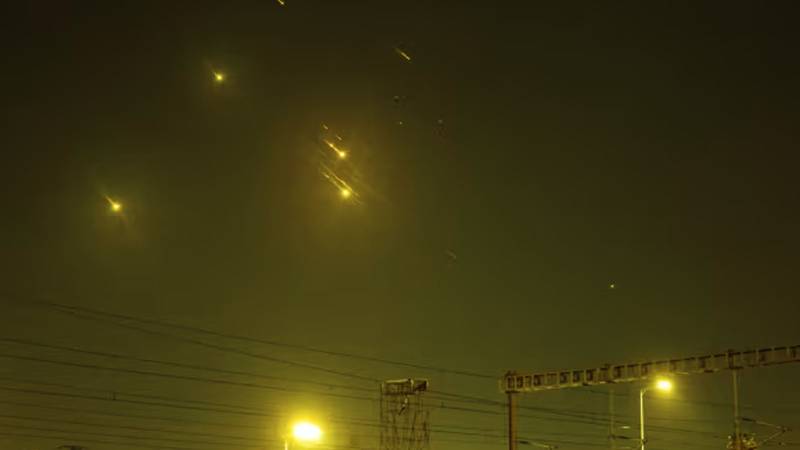
Iran has launched hundreds of missiles at Israel, with some reportedly hitting Israeli territory. This marks the second such attack this year, following a previous barrage in April involving hundreds of missiles and drones. Israeli military officials indicated that the immediate threat from Iran appears to have subsided, although the extent of the damage remains uncertain.
Iran fired approximately 180 missiles in this latest attack, slightly exceeding the April assault, which included around 110 ballistic missiles and 30 cruise missiles. Footage broadcast by Israeli TV showed missiles flying over the Tel Aviv area shortly before 19:45 local time. Most of the missiles were intercepted by Israeli air defense systems, although reports suggest that some military bases, restaurants, and schools may have been impacted.
The Islamic Revolutionary Guard Corps (IRGC) claimed that 90% of the missiles struck their targets and announced the use of hypersonic missiles for the first time. They stated that three Israeli military bases were among the targets. In the occupied West Bank, a man in Jericho was killed by falling debris during the missile barrage, according to local authorities. Israeli officials reported no serious injuries, but two people sustained minor wounds from shrapnel.
The IRGC stated that these attacks were retaliation for Israel's killing of prominent Iranian military figures, including Hezbollah leader Hassan Nasrallah and IRGC commander Abbas Nilforoshan, both killed in Beirut on September 27. The IRGC also referenced the assassination of Hamas leader Ismail Haniyeh in Tehran in July, which Israel has not officially acknowledged but is widely believed to be responsible for.
A senior Iranian official revealed that Supreme Leader Ayatollah Ali Khamenei personally ordered the missile strikes. Iran does not recognize Israel's right to exist and aims for its eradication, having long supported paramilitary groups opposed to Israel.
Israel perceives Iran as an existential threat and has conducted covert operations against it for years. The country employs advanced air defense systems, including the Iron Dome, designed to intercept short-range rockets launched by groups like Hamas and Hezbollah. While the Iron Dome was utilized during some of the April attacks, other defense systems played a crucial role in intercepting missiles during the recent assault.
The US expressed its support for Israel following the missile attack. President Joe Biden characterized the assault as "defeated and ineffective" and ordered US forces in the region to assist in intercepting Iranian missiles. A Pentagon spokesperson confirmed that US Navy destroyers had launched about a dozen interceptors against incoming Iranian missiles. US Defense Secretary Lloyd Austin condemned the attack as an "outrageous act of aggression."
British officials also confirmed their involvement in efforts to prevent further escalation, with Prime Minister Keir Starmer emphasizing the UK’s support for Israel's right to self-defense. France and Japan joined the international community in condemning Iran's actions and called for restraint from all parties.
"We have plans, and we will operate at the place and time we decide," stated Daniel Haggari, spokesperson for the Israel Defense Forces. Meanwhile, the IRGC warned that Iran's response would be "more crushing and ruinous" if Israel retaliated.

